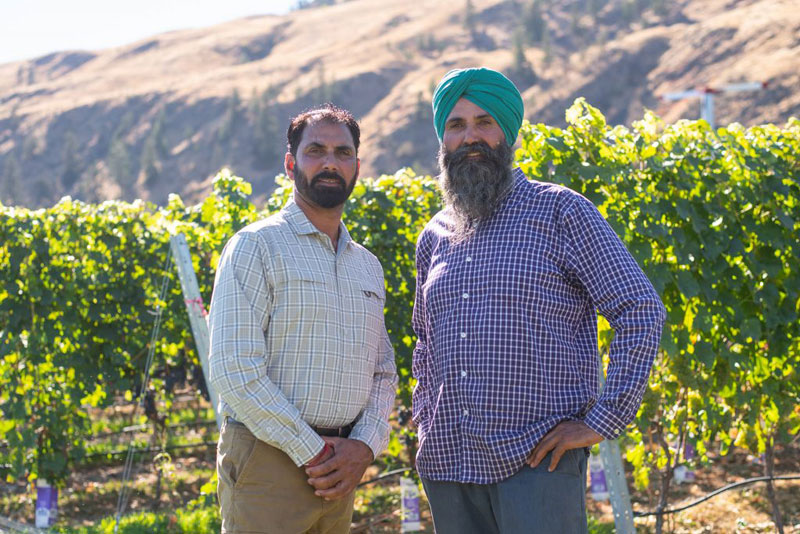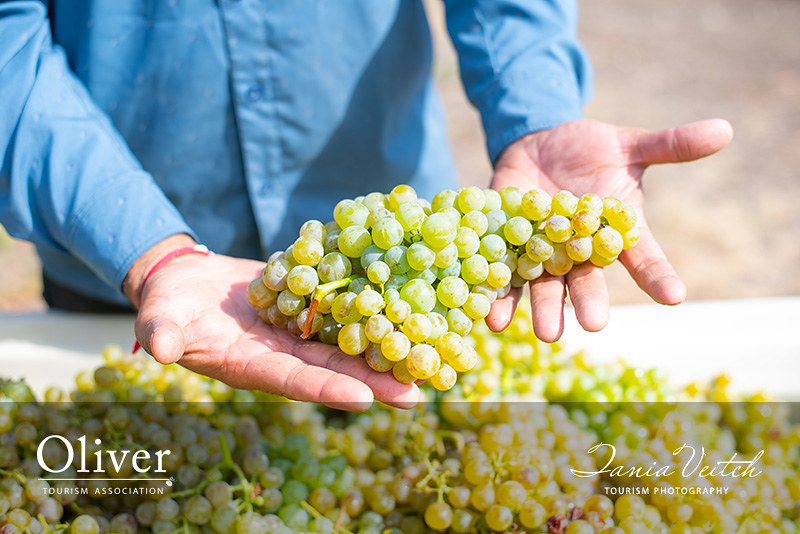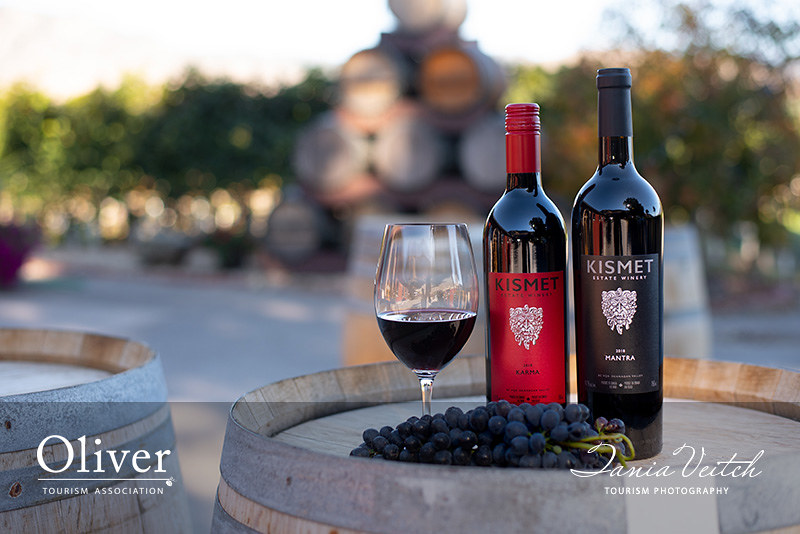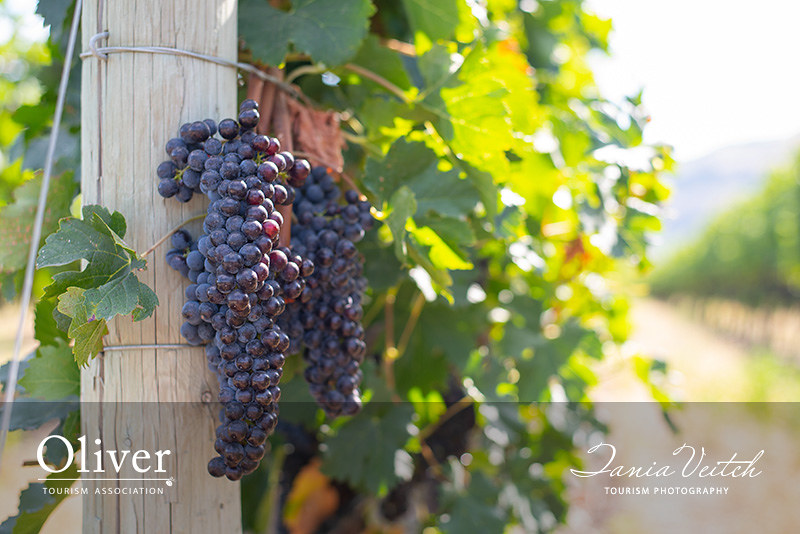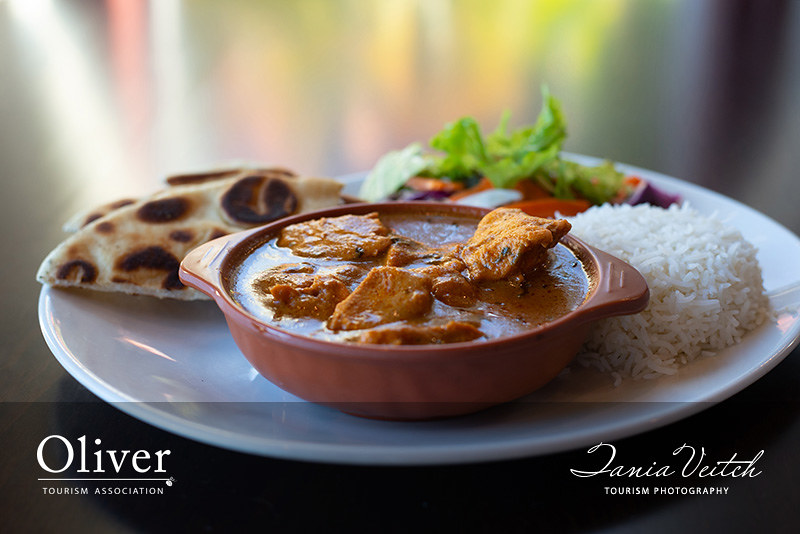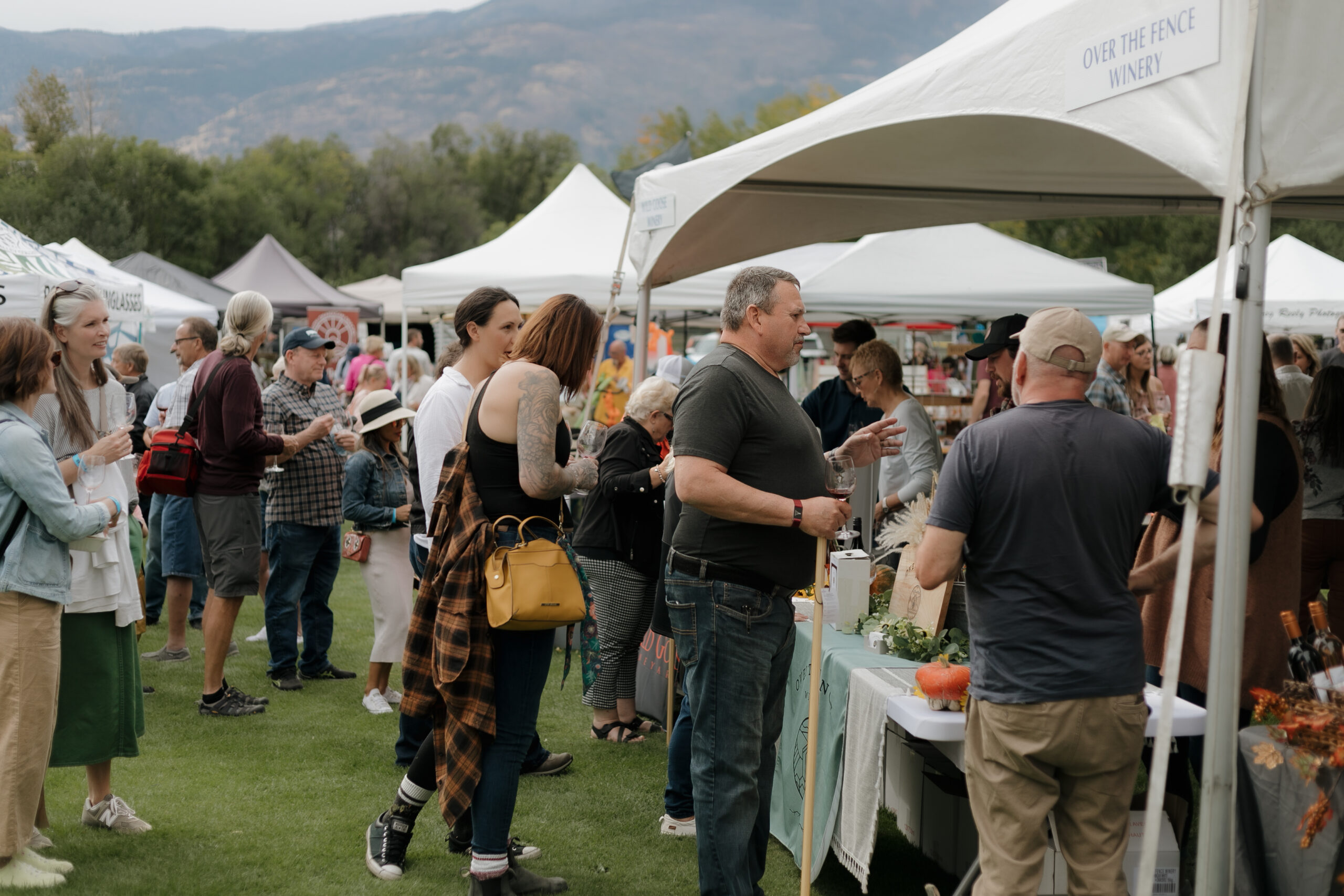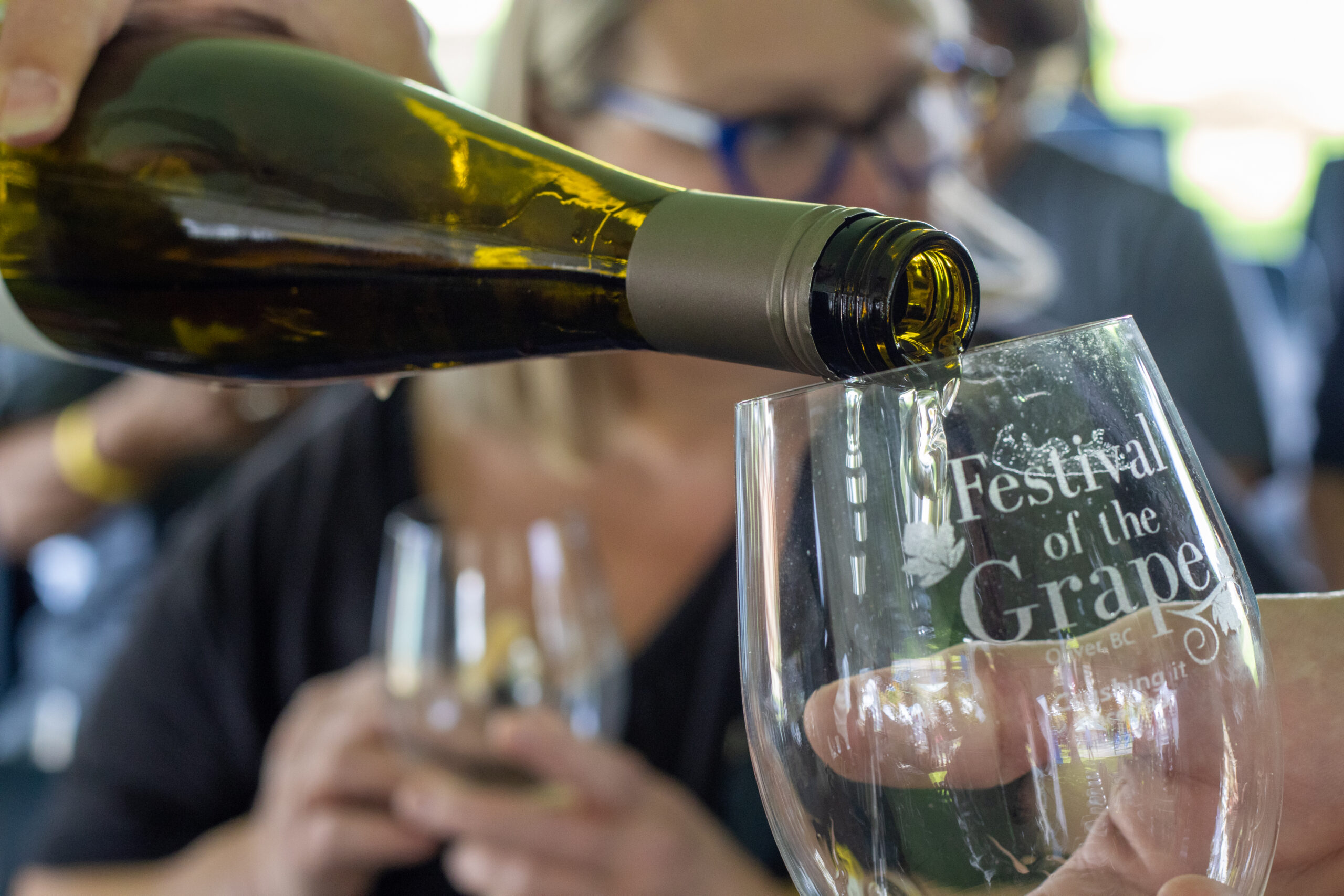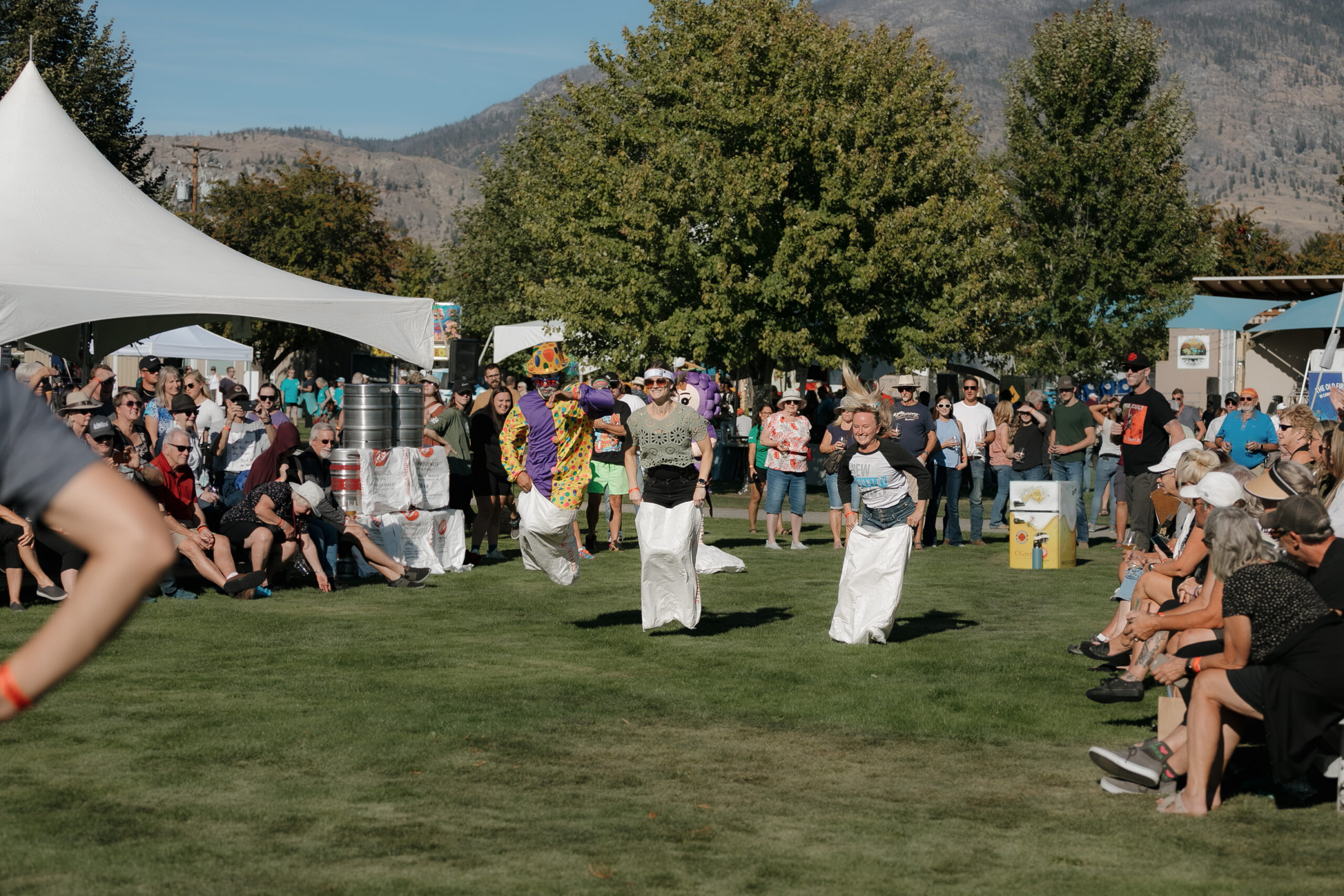Imagine leaving your family and friends, the place you grew up, the language you were used to, the comfort of all that was familiar, and then starting over from scratch in a new country with nothing but a few dollars in your pocket.
This is essentially what Sukwinder (Sukhi) and Balwinder Dhaliwal did when they came straight to Oliver thirty years ago from Chandigarh, Moga, a community located near the city of Ludhiana in the Punjab state of India.
When I asked what their biggest challenge was when they first came to Canada, Sukhi explained, “Life is a struggle when you move from another country and don’t know the language. Nobody knows you, you work with a totally different team. It’s not that easy.”
He added, “There was no TV in Punjabi language back then. There was not much of an Indian community in Oliver in the early ’90s, so when we met Indian families we thought ‘Wow! We’ve got somebody!’”
Balwinder added, “When we came to Canada, we didn’t think we could buy even a 5-acre piece of property. We just came and worked.”
But here they are thirty years later, happy, thankful, and thriving in their hard-earned success.
We’re Here By The Kismet
“We’re so lucky in Oliver,” exclaimed Sukhi, the oldest of the two brothers who arrived on July 17, 1991, when he was twenty-one years old. “We’re in the best country in the world, in the Okanagan, and in Oliver.” He smiled and expanded his arms wide as if to embrace the entire country.
Sukhi continued, “I love growing grapes. I really enjoy. I’m really happy to work every day, wake up, check around the farm. Even in wintertime when there’s snow. I still drive through the vineyards, even with no leaves. That makes me feel good.”
For Balwinder, who arrived in 1993, the best part about starting over in Canada, in addition to working hard to make Kismet, is having his family here.
“I like my family here in Canada. We came from India, a big country with a big population and a lot of crime. This is the best country in the world for living and now we’re in the Okanagan. We have a winery and a lot of land. Seriously, we thank God. We’re so lucky. This is Kismet. We’re here by the Kismet. We’re lucky,” Balwinder expressed.
What does Kismet mean? It means destiny. It’s good luck.
In the Beginning
For Sukhi, who was already familiar with driving a tractor and growing crops like rice, wheat, and tomatoes in India, working for Covert Farms in 1991 and ’92 felt natural.
“I left the farming region of India and came to a farming region in Canada. It was different only because we didn’t have vineyards there,” he explained.
When Balwinder, his parents, and sister came in 1993, they worked for other vineyards, including Black Sage.
They purchased their first bare-land piece of property in 1996 where they started growing apples. They fatefully switched over to grapes in 1999 and began selling to Arterra (Jackson Triggs).
Opening The Winery
By 2008, the Dhaliwals owned close to 200 acres of land. It was a lot to handle while working for other vineyards, so the brothers stopped working for others to focus on their own business.
By 2010, they were producing 300 – 400 tonnes of fruit and selling to ten different wineries.
Demand for them to grow more grapes increased. They continued to buy and lease more land but with so many vineyards it also meant that they produced excess fruit. They needed a backup plan.
Rather than sell the excess grapes for cheap and ruin the market value, Sukhi and Balwinder decided it was time to make their own wine.
Besides, other wineries were winning awards from their fruit.
“They (the wineries) always called us when they won an award,” Balwinder said. “They always appreciated where the fruit came from.”
Bringing in An Expert
First, they brought in Mark Wendenberg, a highly esteemed winemaker who at the time had recently retired from Sumac Ridge Estate Wineries.
Sukhi and Balwinder’s brother-in-law, Dapinder Gill, also joined the team. He took a course to become Kismet’s assistant winemaker and worked alongside Wendenberg for some time before becoming the main winemaker.
Wendenberg still consults and watches over the process.
“He (Mark) comes during harvest to see how things are going and to give advice. He tastes from the barrel once per month,” Balwinder said.
In 2011, Kismet Estate Winery produced 500 cases of red wine. In 2012, they made enough red and white wine to open the tasting room in 2013.
Award-Winning Wine
Every year, Kismet Estate Wineries wins awards for their wines. This year in the All-Canadian Wine Championship Awards they won Double Gold for their 2018 Syrah and 2019 Pino Grigio.
“That’s the big deal,” Balwinder said with pride.
They also won eight other awards at the National level this year, including Gold for the 2017 Syrah Reserve and 2017 Cabernet Franc Reserve; Silver for their 2018 Sparkling Muscat, 2019 Safed, and 2018 Karma; and Bronze for their 2018 Mantra, 2018 Voignier-Roussanne, and 2019 Infinity Rose.
What’s the Secret Behind Kismet Wine?
“It really comes down to location,” said Balwinder.
Kismet Estate Wineries has thirty-five vineyards between Oliver and Osoyoos totaling nearly 500 acres.
“All of the reds are planted in the Osoyoos area,” he explained. “The reason is that the sun stays longer. (The grapes) get extra sunlight throughout the day. On the east side of the valley, they get late sun. Also, sandy soil and they are south-facing.”
He continued, “All the white is planted in the north because it’s cooler. White grapes need heavier soil. They like more moisture. The red likes dry, they don’t want too much water.”
Getting the Perfect Flavour
The fruit develops its flavour during the last two or three weeks before harvest, usually by the third week of October. Having the right amount of sun and heat is crucial.
“The grapes need at least 6 or 7 hours of sunlight at this time of the year (late September into early October), even if it’s 20 degrees,” explained Balwinder. “We don’t want it to be too hot though. If they get more heat, they get a lot of sugar and high alcohol and we don’t want that. We want more flavour.”
Varieties of Grapes
Kismet grows all varieties of white grapes that you can grow in the Okanagan including Riesling, Viognier, Pinot Gris, Gewürztraminer, Sémillon, Sauvignon Blanc, Orange Muscat, Pinot Blanc, Chardonnay, Roussanne, and Marsanne.
Kismet makes a Viognier-Roussanne Reserve that is partially oaked and fermented on the lees.
They also grow most varieties of reds including Cabernet Sauvignon, Shiraz, Syrah, Petit Verdot, Merlot, Cabernet Franc, Grenache, and Malbec.
Kismet also grows the most Mourvèdre in British Columbia which is a rare red varietal in Canada and very popular in France. The Lotus Rosé was mostly made from Mourvèdre this year.
Where Do Kismet Grapes Go?
Kismet Estate Winery crushes approximately 10 to 15 percent of its grape yield for its own wine-making purposes.
The remaining 80 plus percent, are sold to other major wineries including Mission Hill, Peller Estates, Red Rooster, Blasted Church, and Grey Monk, to name a few.
The Dhaliwal brothers have been dealing with Peller Estates for fifteen years now. Most of the fruit, between 600 and 900 tonnes, will go to them. Approximately 200 tonnes will go to Mission Hill who they have been doing business with for twenty years.
“When wineries know you’re a good grower, they like to buy the fruit from you,” Balwinder stated. “They want us to plant more so we can produce good quality fruit. It makes them happy, they make more money. Really, we are all a team.”
Kismet also sells to wineries on Vancouver Island including Muse, Deep Cove, and Beaufort wineries.
Developing More Land
This fall and winter, plans are in the works to start construction on a new vineyard development where they will grow more Pinot Noir, Gamay Noir, and Pinot Gris to sell to Peller Estates. They are currently installing posts, then irrigation. The land will also be prepped for planting in the spring.
Most of the plants will come from Niagara Falls in Ontario in March and they will be kept in a cooler until the time is right for planting. The roots will be soaked in 8 inches of water for a couple of days prior to planting to ensure their survival.
A Growing Family Business
Kismet Estate Winery is one of the largest family-owned estate wineries in the Okanagan. They grow grapes on nearly 500 acres of land.
Both, Sukhi and Balwinder, have two daughters and a son who are in various stages of life from attending Oliver school to working in a job to studying at university.
The kids help with the business in various ways. For example, Sukhi’s daughter, Neelam, handles the marketing and social media aspect of the business from Langley. Balwinder’s son, Gagan, works in the tasting room, vineyard, and winery.
A lot of hard work and experience have gone into Kismet Estate Winery. Sukhi and Balwinder are training the kids to come to the front and one day run the show. In the meantime, they will keep adding and cultivating more land.
“It’s a team effort, with the brothers, wives, kids. Everyone!” exclaimed Balwinder.
Balwinder’s wife, Sandeep, manages the wine shop. Dapinder Gill, brother-in-law, is the general manager of the winery and restaurant, and the winemaker. Sukhi manages all the vineyards. Balwinder helps his brother or anywhere else needed including the restaurant, wine shop, and winery.
“It works out really good. We have a good team and everyone works hard,” Balwinder added.
Authentic Indian Cuisine
In 2017, the brothers decided to open Masala Bistro with the idea of pairing Indian food with their wine.
For example, Balwinder described, “Safed is smooth and a little bit sweet and spicy which goes well with Indian food.”
People eventually started coming to taste the food and wine together and now the restaurant and patio are busy during the tourist season. Reservations are a must if you wish to sit on the patio.
Colince, the head chef at Masala Bistro, has extensive experience as a chef and managing restaurants in Delhi, India.
The restaurant is currently open for lunch and dinner from Thursday to Tuesday (closed Wednesday) between 11:00 am and 7:00 pm until the new year. They close in January and open again on February 1st.
Sukhi and Balwinder are expecting lots of business from the snowbirds this year who are opting for Oliver and the South Okanagan as an alternative to leaving the country.
“The campgrounds are already booked up in Osoyoos and hotels are booking,” informed Sukhi.
COVID-19 Protocols
Kismet Estate Wineries is doing everything they can to keep visitors and staff safe during the COVID-19 pandemic.
They’ve installed signage and stickers to remind people to stay six feet apart, sanitizing stations are everywhere, and you enter one way and exit another. Staff wear masks, regularly wash their hands, and sanitize the counters after each tasting. The four washrooms in the restaurant are also regularly sanitized.
Furthermore, management meets every second week to discuss what’s happening, if there are any complaints, and what they can do better. Reviews thus far have been very good.
Plans for Future
This year, events have been out of the question due to COVID-19, but Kismet Estate Wineries plans to host weddings and small functions in the future once it’s safe again.
“Last year, we were doing once a month live music here, and food. We had 75 people,” Balwinder said, referring to a large lawn-covered outdoor space. “We would sell tickets. That’s our plan for next year.”
For more information get in touch with Kismet Estate Wineries.
Get In Touch
To get in touch with Kismet Estate Wineries, visit their website or call 1-250-495-4462.
